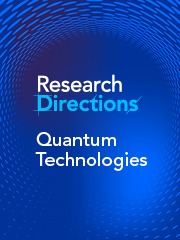Context
Technology is the product of understanding physical processes and learning how to control them in order to achieve desired objectives. To be practically usable, technology requires a degree of reliability, which can be achieved by robust system design and control [Reference Zhou and Doyle1].
There are many aspects to robust control and system design, but at the core, we are interested in robust performance of the system in the presence of uncertainty and both systematic and random errors as a result of, for example,
-
model simplicity and failure to capture certain complex dynamics
-
uncertain driving forces affecting the system
-
stochastic noise that interferes with the desired performance
-
variability due to process and manufacturing tolerances.
Although notions of robustness and robust performance are well understood for classical systems, many classical notions of robustness and measures for robust performance are problematic in the context of quantum technology, and many tools are not applicable to quantum systems. In classical control, robustness is generally achieved via the design of stabilizing controllers and feedback from sensors to the actuators. In a quantum setting, this is problematic as measurements themselves significantly perturb the system and introduce stochastic noise and non-unitary evolution, as does feedback conditioned on measurements [Reference Wiseman and Milburn2], often destroying the very quantum coherence that gives quantum technology its potential edge. Certain quantum systems can be treated using stochastic control approaches [Reference James, Nurdin and Petersen3].
In general, however, quantum systems do not fit well into the conventional robust control framework of linear time-invariant systems, as evolution according to the Schrodinger equation, for instance, naturally leads to control system problems that are neither linear nor time-invariant [Reference D’Alessandro4]. But even for the subclass of systems that can be modeled as linear time-invariant systems, for example, quasi-static energy landscape shaping control, with direct feedback that does not require explicit measurements [Reference Schirmer, Jonckheere and Langbein5], classical notions of robustness are problematic, as it can easily be shown that the environment in this setting tends to act as a stabilizing controller for the marginally stable quantum system. In other words, decoherence increases the robustness and stability of the system. However, this is clearly not a useful notion of robustness as it leads to classical robust behavior and a loss of quantum advantage in many (if not most) cases.
While this might not seem to bode well for even the possibility of robust quantum technology, there are results that rather paradoxically suggest a degree of robustness with regard to model imperfections, for example, that exceed classical limits [Reference Jonckheere, Schirmer and Langbein6].
The aim of this challenge is to answer the following questions:
-
What are suitable notions of robust performance for quantum technology?
-
How can robustness be quantified in the context quantum control?
-
What are the limits to robust performance for quantum control?
-
How can we find robust quantum controllers that achieve these fundamental limits?
Papers addressing or refining the questions above are invited. Robust control theory and applied quantum technologies are two vast, and vastly different, fields, and there is a need to bridge the gap between them. Thus, we specifically welcome papers:
-
translating relevant control results to physics language and vice versa
-
exploring how classical robust control theory can be applied to various quantum systems
-
contributing to the development of a theory (or even methodology) for robust quantum control (or characterizing controllers as robust) not derived from the classical methods.
We also strongly encourage submission of relevant datasets and code for modeling, simulation, and control of quantum systems. Authors interested in submitting datasets, code, or other relevant information are encouraged to contact the editor prior to submission to discuss what material should be submitted and in which format.
How to contribute to this question
If you believe you can contribute to answering this Question with your research outputs find out how to submit in the Instructions for authors (https://www.cambridge.org/core/journals/research-directions-quantum-technologies/information/author-instructions/preparing-your-materials). This journal publishes Results, Analyses, Impact papers, and additional content such as preprints and “gray literature.” Questions will be closed when the editors agree that enough has been published to answer the Question so before submitting, check if this is still an active Question. If it is closed, another relevant Question may be currently open, so do review all the open Questions in your field. For any further queries, check the information pages (https://www.cambridge.org/core/journals/research-directions-quantum-technologies/information/about-this-journal) or contact this email (quantumtechnologies@cambridge.org).
Competing interests
The author(s) declare none.




